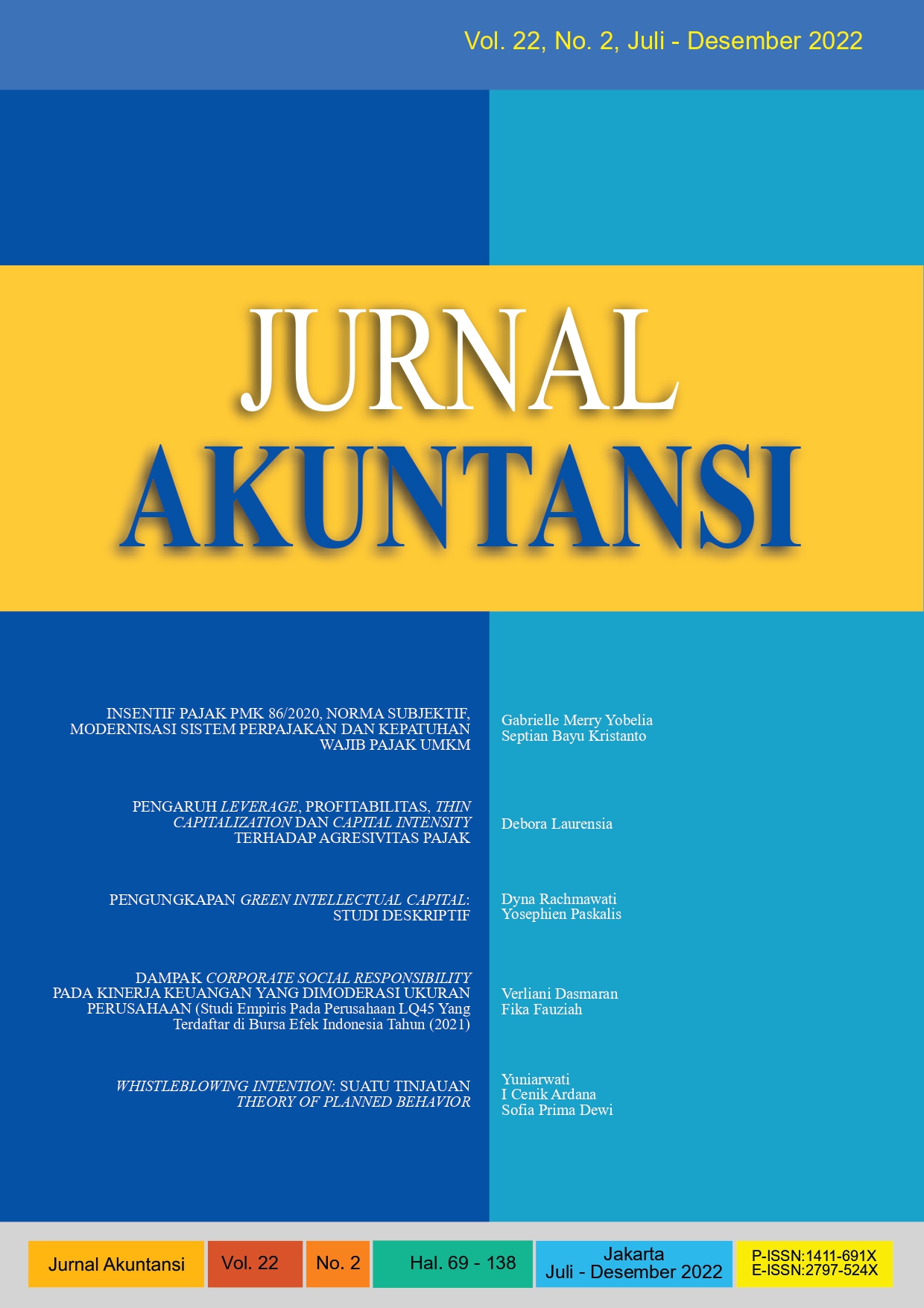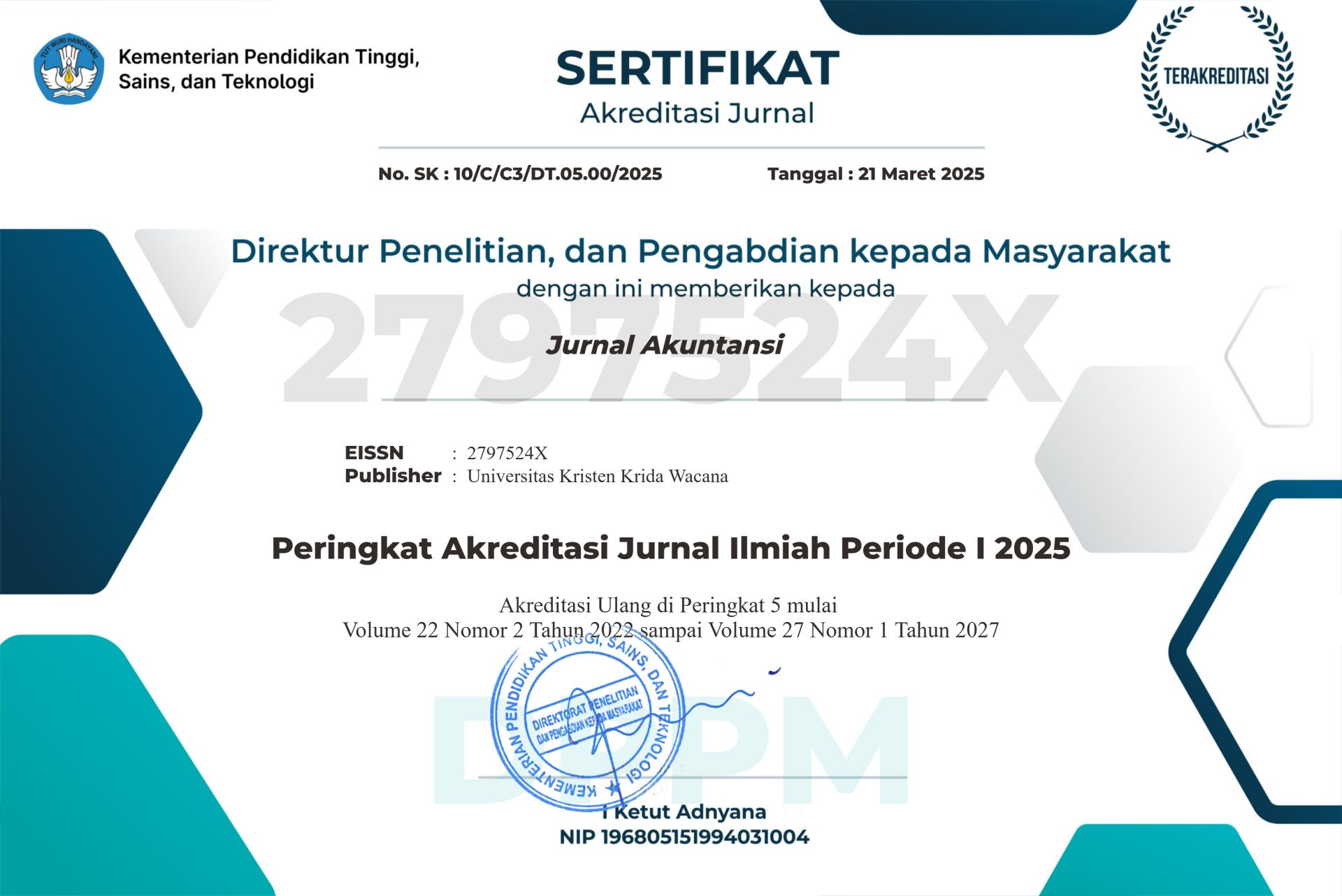Whistleblowing Intention: Suatu Tinjauan Theory of Planned Behavior
DOI:
https://doi.org/10.36452/akunukd.v22i2.2687Abstract
Entering the 21st century, there has been an increase in white-collar crime both in quantity and quality in various parts of the world. White-collar crime is synonymous with various frauds committed by business and government professionals characterized by fraud, concealment, or breach of trust and is not dependent on the application of threats of violence or physical force. The internal control system, which has been very popular and is believed by many parties to prevent various violations, is a blunt weapon to expose various forms of certain white-collar crimes. This is because certain types of white collar crimes often involve the top leaders of an organization that has high authority in the organization, even though the person functions as a guardian of the rules in the internal control system that is applied. Bearing in mind the weaknesses of the internal control system and the increasing white collar crime, various countries and business associations have made various prevention efforts and have increasingly increased the demand for a good governance system. The violation reporting mechanism can be one of the elements that can be relied upon in a good governance system. It is recognized that whistleblowers have given a very important role in exposing various major crime scandals. The population in this study are employees of private companies located in Jakarta. The research data was obtained from distributing questionnaires directly to respondents or via email. The research sample is non random selected in convenience. The results showed subjective norms had a positive and significant effect on intentions of reporting violations, while attitudes and behavioral control perceived positive but not significant effect on intentions of reporting violations.
Keywords: intentions of reporting violations, attitudes, subjective norms, perceived behavioral control.






